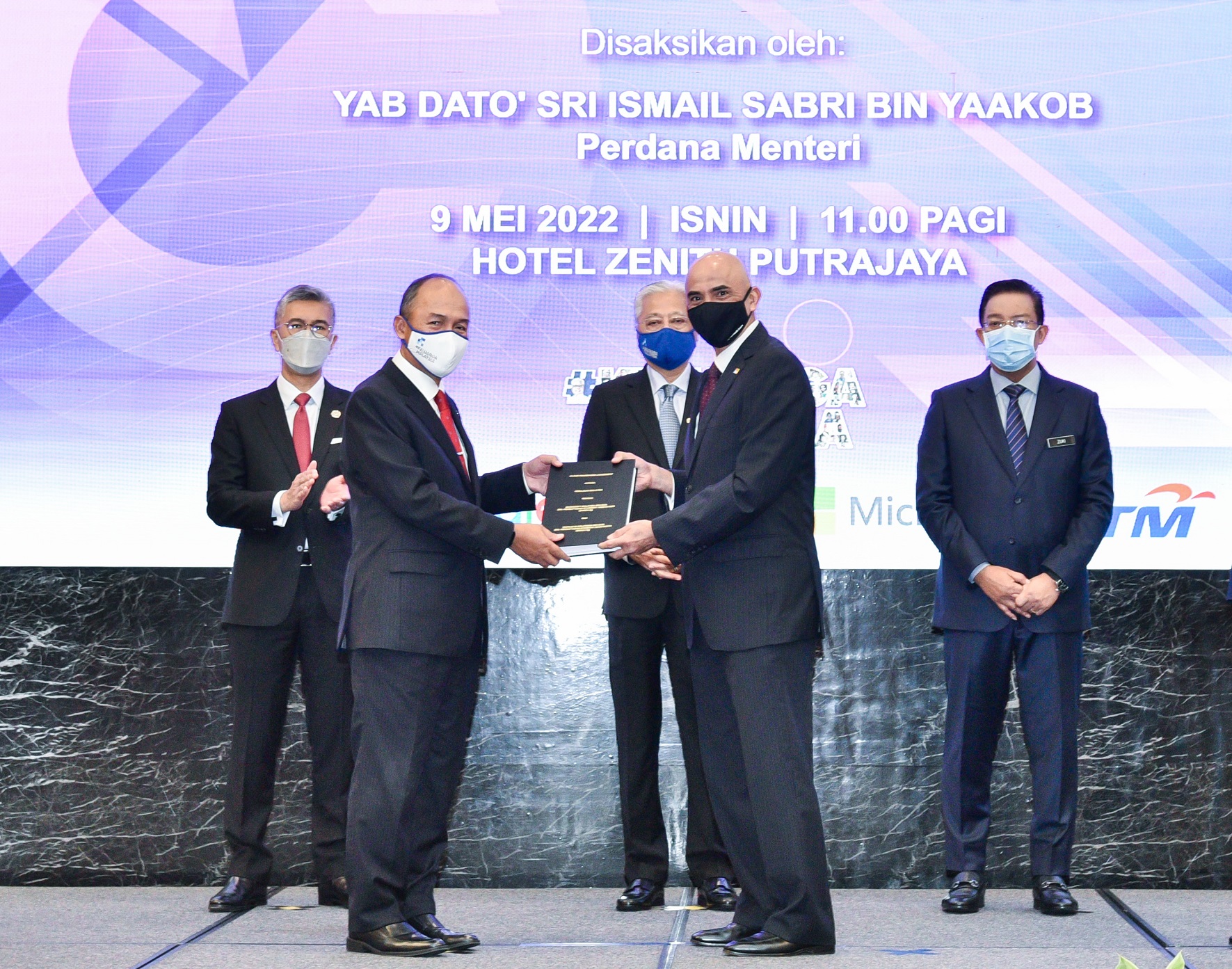Malaysian government to build resilience through govtech, partnerships
By Sheikh Manzoor May 11, 2022
- Partnered with Mampu to take the Malaysian government to the cloud
- Continued efforts to upskill, reskill M’sians to help them thrive in the digital era
 The past few years have fundamentally transformed the way we live, and the way businesses and governments operate today, and a large part of this shift is influenced by the use of technology in our everyday lives.
The past few years have fundamentally transformed the way we live, and the way businesses and governments operate today, and a large part of this shift is influenced by the use of technology in our everyday lives.
In fact, digital transformation is not just a competitive edge, but critical for resilience and long-term growth for both the private and public sectors.
On the public sector front, the World Bank introduced govtech, a whole-of-government approach to public sector modernisation, promoting simple, efficient, and transparent government while placing emphasis on citizen-centric and universally accessible public services.
With this in mind that the Malaysian government developed the MyDigital blueprint, outlining clear goals to transform Malaysia into a digitally-driven, high-income nation and a regional leader in the digital economy.
In addition to upskilling the rakyat and digitalising businesses, the blueprint also sets out goals to accelerate innovation in the public sector.
Among the targets include:
- Ensuring 100% civil servants to possess digital literacy;
- Achieving 80% end-to-end online government services;
- 80% usage of cloud storage across the government in 2022; and
- All ministries and agencies to provide cashless payment options in 2022
Microsoft’s goal is to work with the government in achieving these targets – by being their partner in providing trusted cloud services, backed by technology skills and industry expertise needed for our nation’s successful digital transformation, further driving its competitiveness.
This formed the basis of our Bersama Malaysia pledge, which we made alongside the Government of Malaysia last year.
As part of our Bersama Malaysia commitment, we partnered with the Malaysian Administrative Modernisation and Management Planning Unit (Mampu) to support their target of taking our nation’s government to the cloud.
Together with our partner Enfrasys Solutions, we signed the Cloud Framework Agreement (CFA) to usher in trusted cloud services to public sector agencies and realize our digital economy goals under the MyDigital blueprint.
The significance of the CFA cannot be overstated, as it enables the creation of a comprehensive cloud network through a strategic collaboration between private and public sectors.
This bridges the government’s cloud with public clouds such as Azure, creating a hybrid cloud ecosystem and empowering public sector agencies with access to leading-edge technologies such as artificial intelligence, data analytics and virtual/ augmented reality, among others.
It is worth noting that while the CFA will make it easier for public sector agencies to access transformative cloud-based solutions, some organisations like Sirim and Permodalan Nasional Berhad (PNB), have already embarked on their cloud transformation journey:
Using Azure, Sirim succeeded in automating business processes – which was critical to their business continuity and resilience when the Covid-19 pandemic struck in 2020.
Another example is with PNB, which embarked on their digital transformation journey in 2021 and leveraged Microsoft 365 to transition its workforce into a remote working environment.
We are still at the early stages of our nation’s journey with the cloud, but progress is certainly being made. For the public sector to be the center of GovTech innovation and accelerate transformation, we need to look at two key points of interest: Cloud infrastructure and talent development.
A key announcement we made in 2021 was the establishment of Microsoft’s first datacenter region in Malaysia. This will lay the groundwork for a secure and reliable cloud ecosystem in Malaysia, enhancing our ability to deliver better performance on solutions such as Microsoft Azure, Microsoft 365, as well as Dynamics 365 and Power Platform.
The presence of a local datacenter region not only allows for faster connectivity to cloud data, but it also encourages the usage of the cloud to drive innovation.
Even with the most advanced technology and infrastructure in place, no benefit can be reaped without a skilled workforce. For digital transformation to succeed, having the right skills in place is critical.
Skilling remains an important area for us at Microsoft, where we have also outlined our commitment to upskill 1 million Malaysians by the end of 2023 as part of Bersama Malaysia.
Our objective is to equip individuals with digital and technical skills, thereby creating equal opportunities for Malaysians to thrive in an inclusive digital economy.
Additionally, we are committed to upskill civil servants and equip them with the latest digital and technical skills to develop digital-native policies and effectively utilise the new cloud solutions to accelerate cloud adoption within the public sector.
It is vital that our nation’s public sector embraces cloud technology as we reimagine the way we engage with citizens, empower employees, and digitally transform operations and services.
The citizens are the most important renewable resource, and skills are the new currency of the post-pandemic world.
As Malaysia strives to become a high-income nation, we will continue to work with and alongside the government by providing Malaysians with skilling, upskilling, and reskilling opportunities, to thrive in the digital era.
Sheikh Manzoor is the general manager, public sector group at Microsoft Malaysia
Related Stories :


